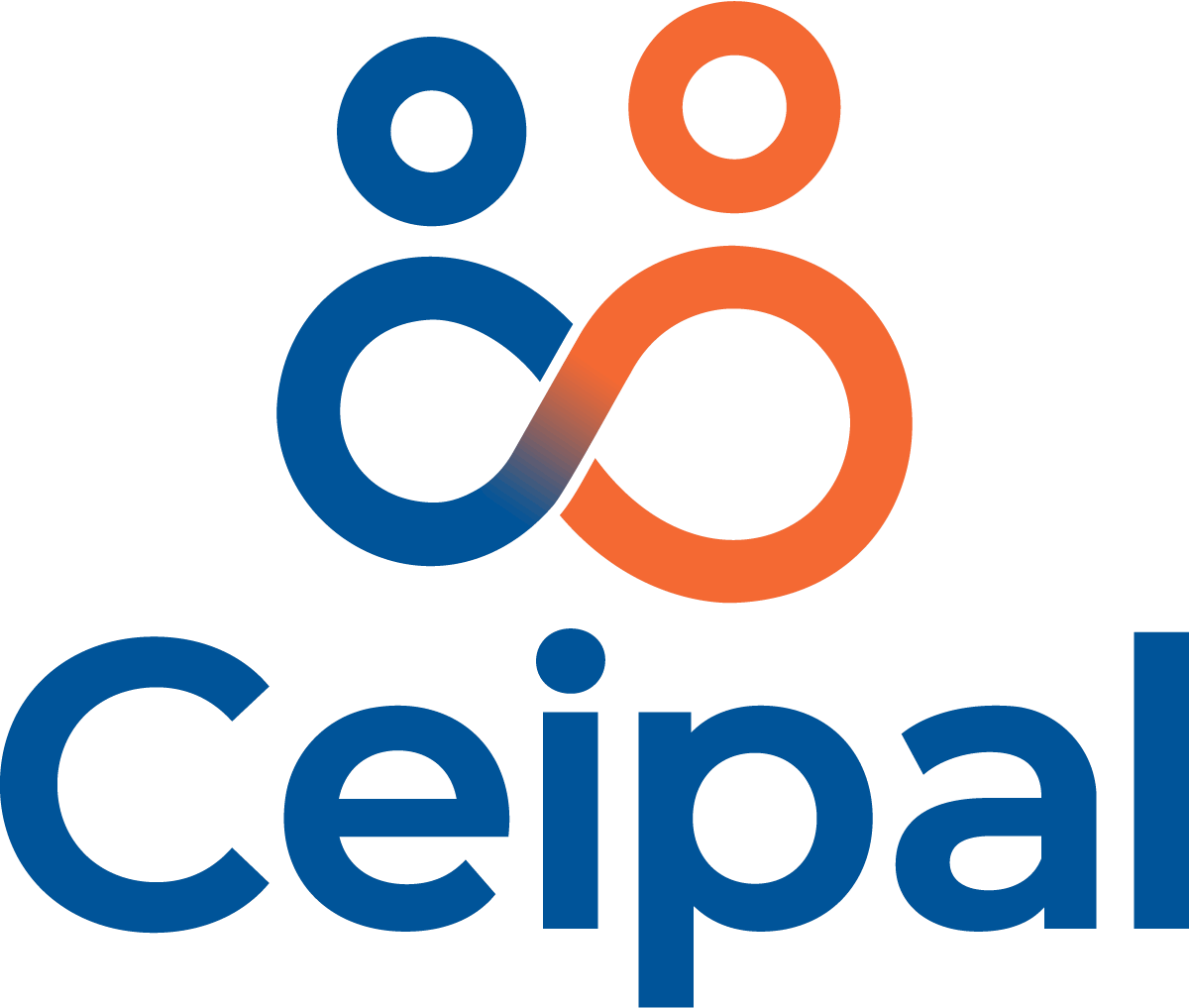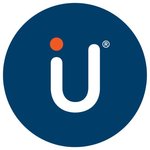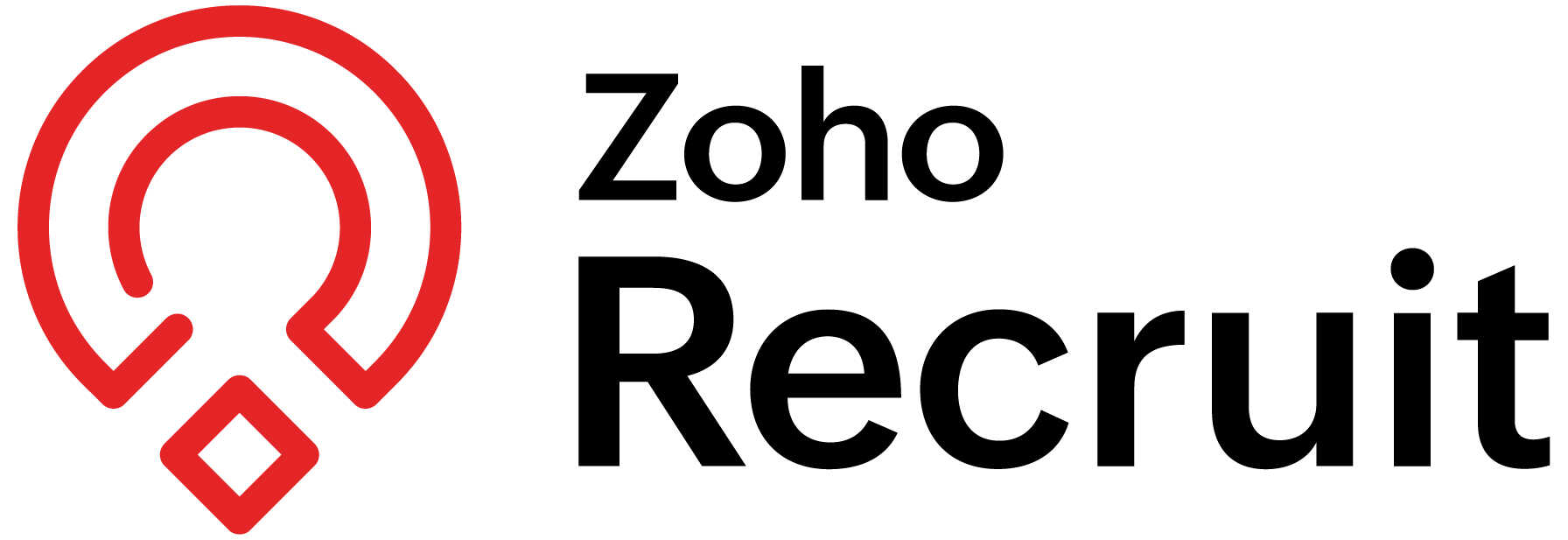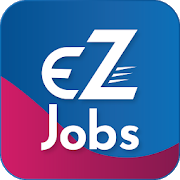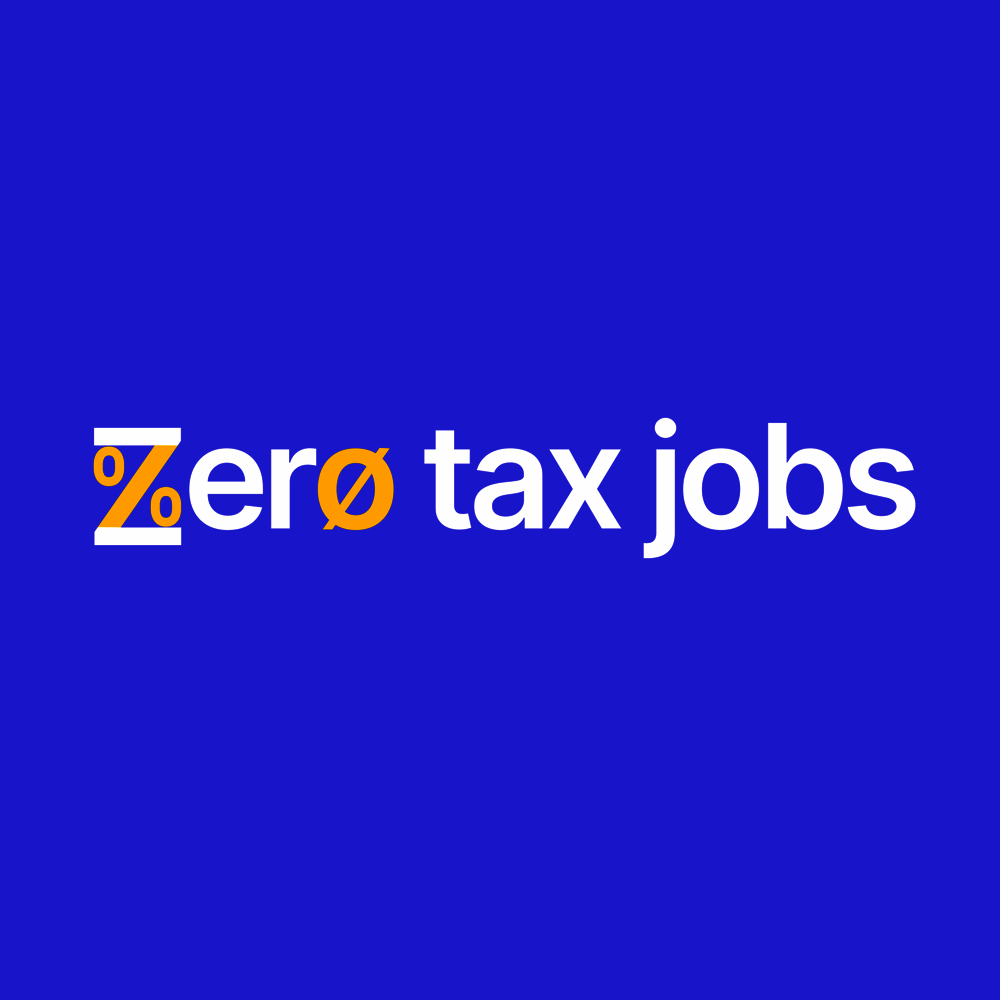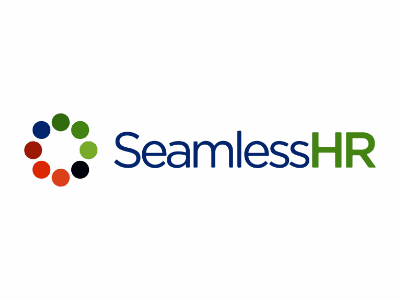Yes, most modern job board software is compatible with numerous devices and platforms. This encompasses desktop computers, laptops, smartphones, and tablets, as well as operating systems including Windows, Mac, iOS, and Android. This enables job seekers and businesses to access the job board from anywhere and at any time, making it more convenient and adaptable. Furthermore, it ensures a wider reach for job advertisements, increasing the odds of discovering the perfect job or applicant.
List of 20 Best Job Board Software
Way2JobZ is a job portal solution for employers, recruitment agencies, and HR professionals. This innovative software provides access to over 1 million resumes, unlimited job postings, and advanced features such as AI and ML-based automatic reading,...Read More Way2JobZ
100Hires is a candidate tracking system. Begin your recruitment journey with ease by simply clicking on this powerful platform. It simplifies the selection process by effortlessly identifying the top talents for your organization. Cut down on time-co...Read More 100Hires
Ejobsitesoftware solution for building unique job boards with an integrated Applicant Tracking System. Whether youre a business, recruiter, or job site, this powerful software makes it effortless to create specialized or general job boards based on s...Read More Ejobsitesoftware
pepelwerk is an innovative digital platform that aims to streamline the job search process for job seekers and employers. Through utilizing advanced technology, the software efficiently matches qualified candidates with suitable job opportunities, re...Read More pepelwerk
QuickFMS is a facility management software that revolutionizes the way you manage your business and infrastructure. It utilizes a cloud-based platform to effectively organize and optimize all aspects of facility operations. QuickFMS empowers you to e...Read More QuickFMS
CEIPAL ATS, a SaaS platform utilizing AI to streamline processes and support staffing and recruiting agencies. This comprehensive solution offers scalable and integrated features, optimizing vacancy identification, accelerating applicant sourcing and...Read More Ceipal ATS
KHOR solution for talent management. Streamline your recruitment, training, and performance evaluation processes with a user-friendly interface and cutting-edge features. KHOR empowers organizations to efficiently oversee HR activities, fostering gro...Read More KHOR
Indeed is a dependable and trustworthy software known for its exceptional performance across various applications. Users highly praise its reliability, making it their go-to option for diverse needs. This software guarantees seamless and effective fu...Read More Indeed
Propellum is a trusted and highly regarded software platform recognized for its exceptional performance in a diverse range of industries. With its robust features and seamless integration, users can rely on it to deliver efficient and reliable result...Read More Propellum
Spacewalk: an innovative AI and no-code platform specifically designed for small and medium businesses. With Spacewalk, businesses can effortlessly establish and control their personalized talent marketplace, linking their skilled professionals with...Read More Spacewalk
Qureos is a platform for job seekers. With advanced features, Qureos enables individuals to stay ahead in the competitive job market, connect with top employers, and assess potential candidates for building a strong recruitment pool. Join the Qureos...Read More Qureos
Zoho Recruit is a applicant tracking system and recruitment software designed for todays workforce. Our advanced features streamline your hiring process and help you find top talent quickly. Say goodbye to missed opportunities and make confident hiri...Read More Zoho Recruit
EZJobs is an innovative job platform in India connecting job seekers with employers across various industries. With a user-friendly design, it offers a wide range of tools for small and medium-sized businesses, along with a robust candidate database...Read More EZJobs
jobberBase the solution that revolutionizes the world of job listings. This cutting-edge platform streamlines the entire hiring process, creating a seamless and efficient experience for both employers and job seekers. With its advanced features, jobb...Read More jobberBase
Meshink - Job Portal is a job search and recruitment solution for both job seekers and organizations. With a user-friendly interface, our software seamlessly connects talented individuals with their dream jobs and helps companies find the perfect can...Read More Meshink - Job Portal
JobPlus solution for building your own job portal platform. Created by BSEtec, this jobberman clone script is the ideal option for entrepreneurs who want to launch a polished and easy-to-use job portal. With JobPlus, you can easily establish your sit...Read More Jobberman Clone - JobPlus
Welcome to Zero Tax Jobs is a job platform for software engineers looking for opportunities in Dubai and Saudi Arabia. Our focus is on connecting talented international developers with the best companies in the Middle East. With a wide range of avail...Read More Zero Tax Jobs
OpenCATS - a free applicant tracking system that is designed by a team of industry experts to facilitate the recruitment process. It streamlines the entire process, starting from job postings to receiving applications from candidates. With OpenCATS,...Read More OpenCATS
Snagajob is a employment platform designed to streamline your hiring process. With its user-friendly features for job posting, applicant tracking, and scheduling, businesses can easily find the ideal candidates. Job seekers can effortlessly apply for...Read More Snagajob
SeamlessHR, a leading HR technology company, is dedicated to equipping businesses in developing markets with cutting-edge technology solutions. Our mission is to boost efficiency and success by offering expertly designed, state-of-the-art software. W...Read More SeamlessHR
Learn More About Job Board Software
- What Is Job Board Software?
- What Are The Recent Trends In Job Board Software?
- Benefits Of Using Job Board Software
- Important Factors To Consider While Purchasing Job Board Software?
- What Are The Key Features To Look For In Job Board Software?
- Why Do Businesses Need Job Board Software?
- How Much Time Is Required To Implement Job Board Software?
- What Is The Level Of Customization Available In Job Board Software?
- Which Industries Can Benefit The Most From Job Board Software?
- Conclusion
What Is Job Board Software?
Job board software is a powerful tool that helps firms of all sizes automate and optimize their job posting, candidate management, and recruiting processes. It is a platform where companies may promote job opportunities, store and organize resumes, and communicate with potential applicants, while job seekers can find and apply for positions that match their talents and experience.
The software includes extensive capabilities like job posting templates, resume processing, keyword search, and applicant tracking, making it an indispensable tool for HR departments, recruiting agencies, and freelancers alike. It also provides custom branding choices, allowing businesses to construct a professional and distinctive job board that represents their corporate image.Furthermore, job board software has simple interfaces and extensive reporting features, allowing organizations to track hiring progress, analyze application and job posting performance, and make data-driven decisions.
This not only saves time and effort, but also lowers the likelihood of hiring the wrong individual. With the advent of remote work and the growing demand for virtual recruitment, job board software has become a must-have tool for firms trying to attract top talent abroad. It provides numerous job distribution options, such as social media integration, email notifications, and job board syndication, which broadens the pool of possible candidates and increases the likelihood of finding the ideal fit.
What Are The Recent Trends In Job Board Software?
In recent years, the employment market has gotten more competitive, making it harder for employers to attract and retain top personnel. As a result, firms are using job board software to streamline hiring processes and reach a larger pool of suitable individuals. To remain competitive, job board software has developed to include new features and technology.
Buyers should consider the following current trends in job board software:
1. Mobile Optimization: With the rise of mobile technology, job searchers frequently search for and apply for jobs using their smartphones or tablets. This has resulted in a huge trend in job board software, with platforms now built for mobile devices, allowing candidates to conveniently search and apply for jobs on the go.
2. Integration With Social Media: Social media has emerged as an important recruitment tool, and job board software has caught on to this. Many platforms now offer seamless integration with multiple social media networks, enabling companies to promote job ads and reach a larger audience.
3. Artificial Intelligence: Artificial intelligence (AI) has made its way into the job board sector, where AI-powered solutions are utilized to improve candidate matching and deliver more personalized job recommendations. This technology can save time for both companies and candidates by automatically matching job requirements to possible candidates' abilities and experiences.
4. Video And Virtual Interviews: Due to the COVID-19 epidemic, there has been an increase in the utilization of video and virtual interviews during the recruitment process. Job board software has responded to this trend by including features such as video interviews and virtual job fairs, allowing businesses to communicate with candidates remotely.
5. Analytics And Reporting: Data is increasingly vital in many parts of company, including job board software. Many platforms now provide comprehensive analytics and reporting tools, allowing companies to monitor the effectiveness of their job advertisements and make more informed recruiting decisions.
Benefits Of Using Job Board Software
Job board software is a powerful tool that enables organizations to streamline their recruitment process and find the best talent for their job openings. This software offers a variety of features and benefits that can greatly enhance the efficiency and effectiveness of your hiring process.
We will discuss the top benefits of using job board software and how it can help your organization attract top talent and fill positions faster.
1. Wider Reach And Increased Visibility: One of the key advantages of job board software is its ability to expand your organization's reach and visibility in the job market. With the use of job boards, your job postings can reach a larger audience, including passive candidates who may not be actively looking for new opportunities. This wider reach can greatly increase the chances of finding the perfect candidate for your job opening.
2. Time And Cost Savings: Traditional recruitment methods, such as advertising on job portals or using recruitment agencies, can be time-consuming and expensive. Job board software automates the process of posting job openings and managing applications, saving you both time and money. It also eliminates the need for paper-based processes, resulting in cost savings for your organization.
3. Advanced Filtering And Screening Options: Job board software often comes with advanced filtering and screening options that allow you to narrow down your pool of applicants based on specific criteria. This can help you save time and effort by focusing on candidates who are the best fit for the job. Some software even uses AI-powered algorithms to match job postings with the most qualified candidates.
4. Access To A Larger Candidate Pool: Job board software can attract a diverse pool of candidates from different locations and backgrounds, providing you with a wider talent pool to choose from. This can be particularly advantageous for companies looking to expand their global workforce or for positions that require specialized skills.
5. Customizable Job Postings: With job board software, you can create customized job postings that accurately reflect your organization's culture and values. This can help attract candidates who align with your company's mission and vision, leading to better employee retention in the long run.
6. Real-Time Analytics And Reporting: Job board software offers real-time analytics and reporting features that give you insights into the effectiveness of your job postings. This data can help you make data-driven decisions, such as adjusting your recruitment strategy or refining your job descriptions to attract more qualified candidates.
Important Factors To Consider While Purchasing Job Board Software?
When it comes to acquiring job board software, buyers should examine a number of essential elements before making a purchase.
Here are the essential elements to consider while examining and comparing various market options.
1. User-Friendliness: One of the most significant considerations when selecting job board software is its usability. The software's overall design and interface should be user-friendly for both employers and job seekers. It should also include customisable features and a simple approach for producing job advertisements.
2. Integration: The software's compatibility with other tools and systems used by your firm is also an important consideration. It is critical to verify that the job board software works flawlessly with your application tracking system, email marketing platform, and other pertinent technologies. This will save you time and effort while also increasing the overall efficiency of your employment process.
3. Job Distribution: The primary goal of job board software is to reach a bigger number of potential candidates. Therefore, it is vital to examine the software's work distribution capabilities. Is there a large network of job boards and social media sites for posting job openings? Can it automatically send job listings to suitable candidates based on their likes and qualifications? These are crucial questions to ponder.
4. Applicant Management: Effective applicant management is critical for effective recruiting, and your job board software should provide powerful tools to support it. Consider features like as resume parsing, applicant tracking, and candidate communication tools. These will assist you in streamlining your hiring procedure and being organized during the recruiting process.
5. Analytics And Reporting: The capacity to track and analyze data is critical for making sound decisions. Your job board software should provide complete analytics and reporting tools for monitoring the effectiveness of your job postings and campaigns. This will allow you to identify areas for improvement and make data-driven decisions to optimize your hiring process.
6. Customization Options: Each firm has distinct demands and preferences, and your job board software should be able to accommodate them. Look for software that includes customizable options like branding, job posting templates, and application forms. This will not only help you retain your brand image, but will also deliver a more personalized experience for job seekers.
7. Customer Support: Last but not least, think about the customer service offered by the job board software provider. Make sure they provide dependable and responsive customer service, whether via phone, email, or live chat. This will ensure that you have the appropriate support and resources to troubleshoot any problems or inquiries that may occur.
Keeping these crucial criteria in mind allows you to make an informed selection when selecting job board software for your firm. Remember to thoroughly consider each choice and choose the one that best meets your personal requirements and budget. With the appropriate job board software, you can streamline the hiring process and attract top talent to your company.
What Are The Key Features To Look For In Job Board Software?
When it comes to finding the best job board software, there are numerous crucial characteristics to look for. These features will not only improve your organization's recruitment process, but will also present job seekers with an easy-to-use experience. As a buyer, you must grasp the key features that distinguish job board software from the competition.
The following are the important features to look for in job board software.
1. Customization And Branding: A decent job board software should allow you to alter the overall appearance and feel of the platform to match your company's branding. It should also provide a number of customisable designs and branding options to help your job board stand out.
2. Mobile Compatibility: In today's fast-paced environment, it is critical to have a mobile-friendly job board. Look for software that supports responsive design and mobile compatibility so that job seekers can quickly see your job postings from any device.
3. Advanced Search And Filters: Job seekers frequently utilize specific keywords and filters to locate relevant job postings. Look for job board software that includes advanced search options and filters, such as location, job type, pay, and more, to help candidates locate the appropriate position.
4. User Management: As a recruiter, you must have control over the job postings and user accounts on your job boards. Look for software that includes user management functions, such as the ability to evaluate and approve job ads, manage user accounts, and check the status of job applications.
5. Resume Database: A large resume database is an invaluable resource for any employment board. Look for software that has a resume database, allowing you to store and search resumes provided by job seekers.
6. Third-Party Integrations: Working with third-party recruitment technologies, such as applicant tracking systems, can help you expedite your hiring process and save time. Look for software that integrates with major recruitment platforms to improve your workflow efficiency.
7. Analytics And Reporting: Monitoring the performance of your job board and job advertisements is critical for making data-driven decisions. Look for software that has analytics and reporting options, such as job views, applications, and click-through rates, to assess the success of your job board.
8. Security: Protecting sensitive data and combating fraudulent job posts is critical for any job boards. Look for software that has security features like SSL encryption, user authentication, and fraud detection to secure the safety of your job board and its users. By examining these essential qualities, you can select the best job board software that matches your organization's goals while also providing a seamless experience for job searchers. Remember to conduct extensive research and comparisons in order to make an informed decision and get the most out of your job board software.
Why Do Businesses Need Job Board Software?
In today's fast-paced business environment, acquiring top personnel is critical to any company's success and growth. Traditional recruiting and hiring procedures, on the other hand, can be time-consuming, expensive, and frequently produce ineffective outcomes. Here's where job board software comes into play. Job board software is a strong tool for streamlining the hiring process, making it more efficient, cost-effective, and successful.
It offers employers a unified platform for posting job openings, managing applications, and communicating with candidates, all while accessing a larger pool of suitable applicants. One of the primary reasons that organizations use job board software is the convenience it provides. Companies can easily build and adjust job postings based on their needs and hiring criteria.
These listings can be easily shared on the job board's website, as well as other platforms and social media channels, extending their exposure. Furthermore, job board software streamlines the application process for both employers and seekers. It enables applicants to apply directly through the job board, avoiding the inconvenience of sending or mailing their applications.
Businesses, on the other hand, can use software to efficiently track and manage applications, shortlist applicants, and connect with them. Another advantage of job board software is the potential to attract top talent. These platforms have larger and more diverse user populations, including passive job seekers and top professionals, which increases the likelihood of finding the ideal candidate for the job.
Furthermore, some job board software includes additional capabilities such as resume screening and pre-employment exams, which allow employers to make more educated hiring decisions. Most importantly, job board software can save employers a lot of time and money. By automating and streamlining the hiring process, businesses can reduce manual labor and eliminate the need to advertise job vacancies across various platforms. This not only saves time, but also lowers hiring costs in the long run.
How Much Time Is Required To Implement Job Board Software?
The time required for establishing job board software varies based on a number of factors. These can include the software used, the level of customization, and the size of your firm. However, completely implementing job board software can take anywhere between two and three months on average. First and foremost, the sort of job board software you select will have a big impact on implementation time.
Some software may include ready-to-use templates and a simple setup process, considerably reducing the time required for installation. However, more complicated software that requires considerable modification or interface with other systems may take longer to implement. Furthermore, the level of personalization will have an impact on the timetable.
If you intend to customize the job board software to meet the specific demands of your organization, the deployment procedure may take several weeks longer. This may entail incorporating branding and design aspects, developing a distinct user interface, or integrating the software with your current job application process. Furthermore, the size of your firm can influence the time needed for implementation. Larger firms with various departments and users may take longer to install job board software due to increased testing and training requirements.
Smaller firms, on the other hand, may be able to install software more quickly since they have fewer users and a simpler structure. It is critical to remember that the time required for implementation can vary and may be influenced by other unexpected circumstances. To guarantee a seamless and timely deployment, it is critical to have a comprehensive grasp of your organization's requirements and properly convey them to the software vendor. This will assist to create reasonable expectations and guarantee that the software is executed properly and successfully.
What Is The Level Of Customization Available In Job Board Software?
The level of customization possible in job board software varies according to the platform you choose. However, most job board software provides extensive customization possibilities to match the specific demands of your company. At the most basic level, customization often involves branding choices like adding your company's logo, colors, and fonts to the job board.
This helps to ensure that your brand has a consistent and professional look. Beyond branding, many job board software allows you to change the layout and style of the job board. This offers the option to use pre-designed templates or develop a bespoke layout from scratch. You can also customize the job board with filters, search options, and application forms based on your industry and needs.
In addition to visual customization, job board software frequently supports administrative customization. This allows you to configure permissions for various user roles, add or delete features, and manage the job board's overall operation. Overall, the level of customisation available in job board software enables you to provide a unique and personalized experience to both job seekers and employers.
It also allows your employment board to stand out in a competitive market while effectively serving your target audience. So, before you choose a job board software, think about your customization requirements and evaluate the possibilities to discover the best fit for your company.
Which Industries Can Benefit The Most From Job Board Software?
Job board software is a valuable tool for companies in a variety of industries looking to streamline their recruitment process and attract top talent. Its user-friendly interface and advanced features make it a must-have for organizations of all sizes. But which industries can benefit the most from job board software?
Let's take a look.
1. HR And Recruitment: It goes without saying that HR and recruitment agencies can greatly benefit from job board software. With its ability to post job openings, manage resumes, and track candidate applications, job board software can greatly reduce the time and effort spent on traditional recruitment methods. It also allows for easy communication with candidates and can help streamline the entire hiring process.
2. Education: In the education industry, schools and universities are constantly looking for top teaching and administrative talent. Job board software can be a valuable asset in this regard, as it allows them to post job openings and manage applications from potential candidates. It also makes it easier for educational institutions to target and attract highly qualified individuals who may not be actively searching for job opportunities.
3. Healthcare: The healthcare industry is always in need of qualified medical professionals, and job board software can help hospitals and clinics find the best candidates. Job postings can be tailored specifically to medical roles, and the software can easily manage the high volume of resumes and applications that come in for these positions. This can greatly expedite the hiring process and ensure that the best candidates are selected for the job.
4. Technology: The technology industry is highly competitive and constantly evolving. As such, companies in this field are always on the lookout for top tech talent. Job board software allows them to post job openings for various technical roles and attract skilled candidates from all over the world. Additionally, the software often comes with features like resume parsing and keyword searching, making it easier to find candidates with the specific skills and experience needed in the tech industry.
5. Non-Profit Organizations: Non-profit organizations often operate on limited budgets and resources, which can make the recruitment process challenging. Job board software can help these organizations to efficiently manage their job postings and receive applications from potential volunteers and employees. It also allows them to target their job postings to specific demographics, such as recent graduates or individuals with a passion for their cause.
Conclusion
Finally, selecting the appropriate job board software is a critical step in developing a successful and efficient recruitment process for your firm. After carefully reviewing the numerous features and criteria listed in this buyer's guide, you must examine your specific business requirements and budget before making a final purchase. Make sure you choose job board software that provides configurable options, comprehensive functionality, and smooth integration with your existing systems.
Prioritize security and user experience to recruit and retain excellent talent. Don't be afraid to ask for demos and trials to test the software's usability and performance before making a purchase decision. Remember that investing in a dependable and user-friendly job board software can significantly improve your recruitment strategy and overall business success. Take the time and effort to thoroughly investigate and analyze several possibilities before making your ultimate decision. We hope this buyer's guide has helped you make an informed decision and choose the best job board software for your firm.
Job Board Software FAQ's
Can Job Board Software Be Accessed Across Multiple Devices And Platforms?
Is Job Board Software Future-Proof And Adaptable To Emerging Technologies Like AI, Blockchain Or IoT?
Job board software evolves and adapts to the ever-changing technological context. As emerging technologies such as AI, blockchain, and IoT develop, job board software incorporates new features to improve the user experience and efficiency. With continuous upgrades and developments, job board software guarantees that it is future-proof and adaptable to new technologies, delivering a seamless and cutting-edge platform for both job searchers and employers.
Is There A Free Trial Offered To Assess Job Board Software Before Committing?
Yes, many job board software companies provide a free trial period in which consumers can evaluate their platform and features before making a commitment. This enables organizations and recruiters to thoroughly evaluate the software's functionality, usability, and compatibility with their requirements.
It also allows people to compare their options and make an informed decision. A free trial is an excellent approach to confirm that the job board software fulfills your needs and provides good value for money before making a purchase.
Does Job Board Software Offer Data Security Features And Meet Regulatory Compliance Standards?
Job board software often includes strong data security measures like encryption, two-factor authentication, and regular backups to secure sensitive personal and company information. Furthermore, many job board software providers conduct regular security assessments and adhere to industry-standard rules such as GDPR and CCPA to maintain regulatory compliance. This gives users piece of mind knowing that their data is secure and meets all applicable standards.
Can Job Board Software Integrate Seamlessly With Existing Tools And Platforms?
Yes, most current job board software is intended to work easily with existing tools and platforms. This facilitates the movement of job advertisements, applications, and candidate data between platforms, resulting in a more efficient and effective workflow.
APIs and integrations enable job board software to communicate with applicant tracking systems, payroll software, and other HR platforms. This integration option improves the functioning of job board software and speeds up the recruitment process for businesses of all sizes.






